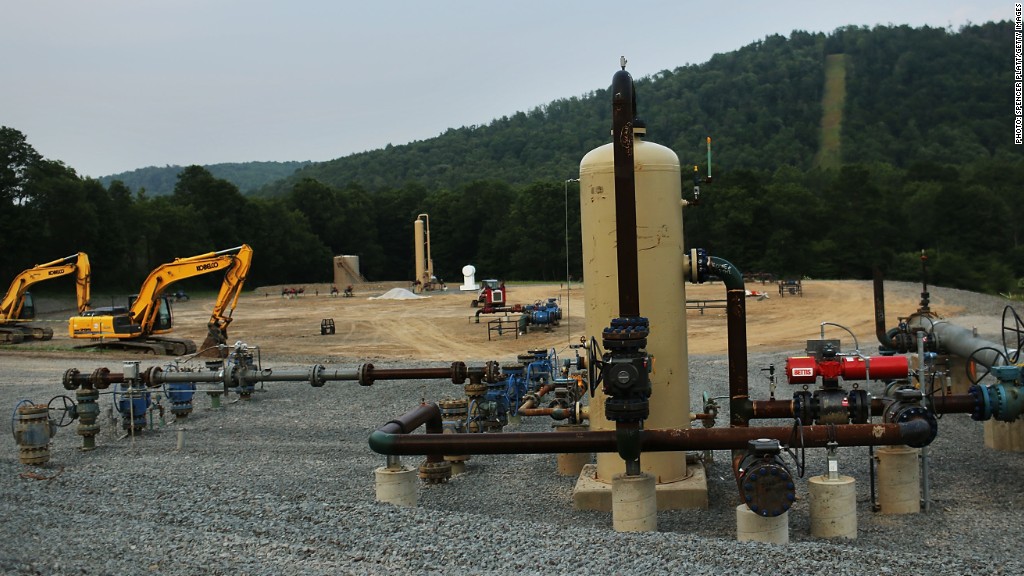
The Environmental Protection Agency released a progress report Friday that reiterated its support for increasing natural gas development in the United States.
"As the administration and EPA has made clear, natural gas has a central role to play in our energy future," the agency said in a press release. "The administration continues to work to expand production of this important domestic resource safely and responsibly."
EPA outlined several steps it's taking to assess the impacts fracking -- short for hydraulic fracturing -- has on the nation's water supply, as directed by Congress in 2009.
Steps include:
-- Analyzing existing data from natural gas companies on chemicals and practices used
-- Modeling how discharging waste might impact the water
-- Lab testing on water discharge
-- Testing fracking chemicals for toxicity
-- Testing groundwater in five regions near drilling activity
As expected, the study contained no new data or conclusions. The final results are not expected until late 2014.
Related: World's 10 most expensive energy projects
Some see the lack of data or negative comments in Friday's progress report as a positive for the industry.
"It signals that the Obama administration has no real appetite for additional federal regulations until 2014 at the earliest," said Nitzan Goldberger, a natural gas analyst at Eurasia Group, a political risk consultancy. "That's good news for the oil and gas guys."
The Obama administration has tightened some rules around fracking, but for the most part has left regulation up to the states.
Fracking involves injecting massive amounts of water, sand and some chemicals deep underground in a bid to crack shale rock and ease the flow of oil and natural gas.
The process has unleashed an energy boom in the United States, creating thousands of jobs, driving down the price of oil and natural gas and cutting energy imports to levels not seen in decades.
But it's also raised serious concerns over its effects on the environment, including air pollution from trucks and wells, its links to earthquakes and fears that it is contaminating drinking water.
For environmentalists, the negatives seem to outweigh the positives.

Fracking was once seen by some environmentalists as a technology that, given the proper regulations, could be done safely and provide a fuel that emits far fewer greenhouse gases than coal. Natural gas was seen as a good alternative to coal, at least until renewables like wind and solar were ready for prime time.
But declining costs for renewables, more instances of water contamination, uncertainly over the heat-trappng nature of natural gas that escapes from wells unburned, and a fear that cheap gas is crowding out wind and solar have led many to change their minds.
Several environmental groups are calling for an immediate ban on fracking, while others favor a gradual phase out combined with greater federal regulation.
On the other side are many analysts and economists that believe this technology can give the United States a significant economic and geopolitical advantage.


